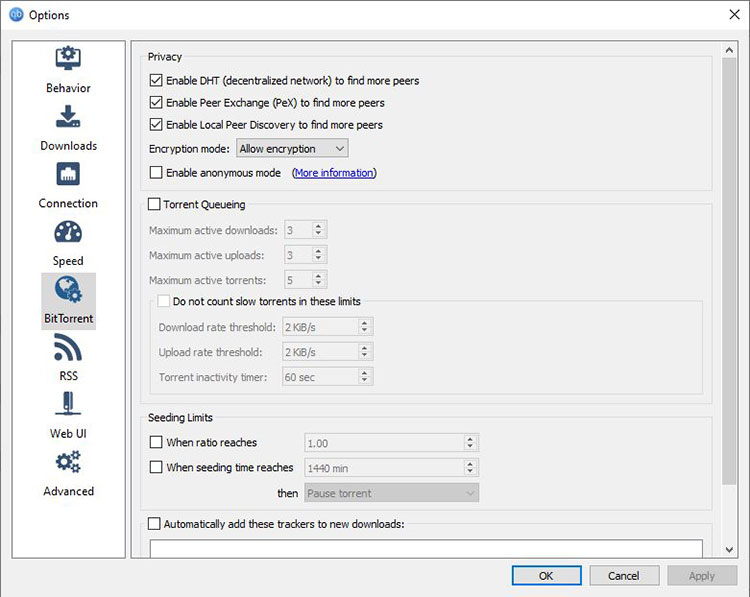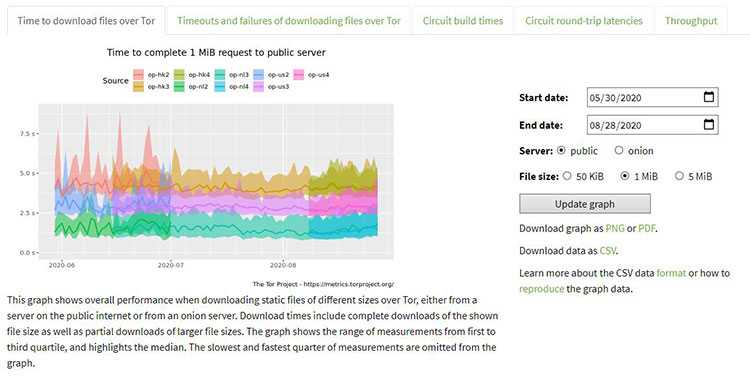ISP Blocking Torrenting? How to Fight Back

Think you might be dealing with an ISP blocking torrenting?
You’re not alone. Dozens of ISPs are causing problems for torrent users.
Why?
Most likely to protect themselves against DMCA notices and threatening letters from lawyers. And to respect laws that are against torrenting.
We’ll discuss this topic more in-depth in this article – how ISPs detect torrenting, how they block it, and what you can do about it.
Table of contents
DISCLAIMER: CactusVPN doesn’t encourage illegal torrenting. However, we can’t ignore the fact that many people around the world can only get the content they need (entertainment, school books, work-related software, etc.) by using torrents.
Can ISPs Detect Torrent Traffic?
Not directly – unless you use an outdated torrent client.
But as secretive as BitTorrent traffic is, your ISP can check your traffic for certain signs to see if you’re downloading torrents:
- Simultaneous upload streams.
- Multiple TCP connections.
- High bandwidth usage.
Besides that, they could also use DPI to analyze your unencrypted DNS queries. By doing that, they’ll know you’ve been visiting torrent sites.
Furthermore, if they can afford it, your ISP can pay a torrent monitoring agency to alert them when an IP address that belongs to them shows up among seeders and leechers on a torrent.
Is My ISP Blocking Torrenting?
The easiest way to tell is to try and download a torrent. If there are enough seeders and you don’t get any speeds or get very low speeds, there’s a good chance your ISP is blocking torrenting traffic.
Try downloading a direct download at the same time as the torrent too. If the direct download goes through without any problems but the torrent stalls, your ISP is likely the culprit.
Also, if you can’t connect to torrent sites, but you know they’re up and running, or you know people can successfully use them, your ISP is probably blocking them.
We’ve seen some people online recommending certain online tools that should detect ISP blocking torrenting, but they seem pretty outdated and don’t really work well.
One Quick Note
Sometimes, it’s not your ISP who is blocking torrenting, but other peers who are blocking or throttling you. That can actually happen if you don’t seed enough back to the community.
To make sure this isn’t the problem, try to increase the maximum number of peers and/or connections. Also, if your torrent client has any bandwidth throttling options, make sure they’re disabled.
If you’re still getting the same results, ISP blocking torrenting is the issue.
How Is Your ISP Blocking Torrenting?
Well, only they know how that works, so we’re just speculating here. But we think they might do any of the following:
- Use DNS filtering, IP blocking, or URL blocking to restrict access to torrent sites.
- Use DPI to analyze your traffic and drop torrent connections on their network.
- Block BitTorrent traffic ports (like TCP ports 6881 to 6889).
- Throttle torrent connections to discourage you from running them.
How to Unblock Torrent Traffic (7 Options)
Given the context, we’ll focus on solutions that help you mainly unblock torrenting. If they can help you unblock torrent sites too, we’ll mention it.
We’ll also rank the solutions we came up with in terms of how efficient and convenient they are.
So, let’s get started:
1. Use a VPN
Without a doubt, VPN services like CactusVPN are the best way to enjoy torrenting without ISPs butting in. We offer an online service that “hides” your IP address and encrypts your traffic end-to-end. Here’s a very simple overview of how it all works:
- You subscribe to CactusVPN, and use our VPN apps to connect to one of our VPN servers.
- The app and server establish an encrypted connection between them. All data is encrypted end-to-end meaning only the app and server can decrypt it.
- When you visit a torrent site, your connection requests are routed through a CactusVPN server. So all your online communications with the site are done through the server’s IP address.
- Because of that, you can bypass your ISP’s firewall since its rules are only linked to your IP address.
So bottom line – with a VPN, you can unblock both torrenting sites and traffic, and stop ISP bandwidth throttling. And your ISP won’t know you’re doing it because your traffic is encrypted.
Need a Good Torrenting VPN?
Try CactusVPN – we offer high-speed torrent-friendly servers with unlimited bandwidth. Plus, we also provide lightweight protocols like IKEv2 and L2TP/IPSec to make sure you enjoy smooth speeds.
What’s more, we offer both a system-level and an application-level kill switch. That way, you don’t have to worry about your ISP catching you in the act if your VPN disconnects.
Oh, and you’ll be happy to know we have user-friendly apps for most platforms.
Special Deal! Get CactusVPN for $3.5/mo!
And once you do become a CactusVPN customer, we’ll still have your back with a 30-day money-back guarantee.
2. Use a Proxy
A proxy hides your IP address just like VPNs do. So it can definitely help you unblock torrent sites.
However, not all proxies can unblock torrent traffic for you.
Why?
Because many of them don’t use encryption. Or if they do use any, it’s pretty weak, making it susceptible to DPI.
HTTPS proxies should help, though. They offer stronger security which should stop your ISP from detecting your torrent traffic.
But instead of paying for one and dealing with complicated UIs, why not use a VPN whose servers double as proxies instead? With CactusVPN, you can actually use our secure VPN servers as proxies at no extra cost.
3. Encrypt Your Torrents
If you don’t want to use a VPN, you could turn to the built-in encryption in your torrent client. How you enable this option varies from torrent client to torrent client, but you normally have to head to this place: Tools > Options > BitTorrent.
You should find an option allowing you to tweak your torrent client’s encryption mode there. To enable encryption, you normally have to pick these options: Allow encryption or Require encryption.

Just keep in mind there are some drawbacks:
- If you force encryption (through the Require encryption option), you’ll have to put up with a limited number of peers. That’s because your torrent client will only connect to other peers who use encryption. If there are only a few of them, your speeds will go down.
- If your torrent client only encrypts the headers of your data packets and not the payload, encryption won’t help you too much. It will be pretty easy for your ISP to detect torrent traffic that way.
- There’s allegedly an application from a company named Sandvine that can identify BitTorrent traffic even if encryption is used.
- Built-in encryption in torrent clients is pretty weak (only 60 and 80-bit encryption keys).
- This option won’t help you unblock torrent sites.
4. Use Port 80
If your ISP is blocking ports, you might have to use one they can’t touch – port 80, to be exact. Over TCP, it’s the default port for HTTP data transfers. It’s used for web traffic, so it’s safe to say your ISP won’t block it.
To make your torrent client use it, you normally have to go to Tools > Options > Connection. Just type in 80 in the port field, and disable UPnP and NAT-PMP.
Expect to deal with slower speeds, though. And no encryption, of course (since it’s HTTP not HTTPS).
Alternatively, you can just try switching to different ports until you find one your ISP didn’t block.
5. Use Mobile Data
You basically have two options:
- Use mobile data on your smartphone or tablet to download torrents. You’ll use a different network that’s not run by your ISP, so there shouldn’t be any torrent blocking (unless your mobile provider enforces it). Then, just transfer the downloaded content to your main device.
- Tether your device’s mobile data, use it to start downloading the torrent you want on your main device, and then switch back to your ISP’s network. The torrent should continue downloading as normal. But keep in mind this will only work if your ISP uses a firewall with very basic blocks.
6. Use a Seedbox
A seedbox is usually a VPS (Virtual Private Server) that people pay to use to download torrents. They help you unblock torrent sites and traffic by masking your IP address, hiding your browsing, and using HTTPS to encrypt your traffic.
So it’s basically an HTTPS proxy – except with much faster speeds and better bandwidth.
Before you ask, no, there are no free seedboxes. The owners pay to rent the servers, so they need to make money somehow. If you ever come across a free seedbox, it’s likely malicious or a scam.
In our opinion, a seedbox is the best alternative to using a VPN if you’re only interested in downloading torrents. Just keep in mind they’re usually more expensive. A VPN might cost you around $4-5 per month with a long-term plan, but a seedbox might cost anywhere between $6 and $15. Some seedbox plans might even go up to $50 and more depending on your needs.
7. Use Anomos
We saved this for last because Anomos’ site actually doesn’t work anymore. You’ll have to download the client from this third-party site or SourceForge.
As for what Anomos is, think of it as a torrent client with end-to-end encryption. Since it’s based on Python, the UI is pretty clean and easy to get accustomed to.
However, there are some problems:
- You likely won’t get any support since the main project seems to be dead. That also means you might deal with bugs and an unresponsive client.
- Anomos can only open .atorrent files. You either have to find them or convert regular torrent files into them.
All in all, using a regular torrent client together with a VPN sounds much more convenient than relying on Anomos.
Does Tor Help When You’re Dealing with an ISP Blocking Utorrent?
In theory, you could. Tor is a privacy network that hides your IP address and encrypts your traffic. So it’s pretty similar to a VPN, but – unlike it – it encrypts your traffic multiple times.
That sounds pretty good, but here’s the problem – torrenting over Tor isn’t very safe. The devs themselves say so, and urge people not to do it. Doing that might actually break the privacy of your web traffic. Or the torrent client might end up ignoring Tor altogether.
Besides that, Tor is also not suitable for torrenting due to its speeds. With over two million users and only a little over 6,000 servers to go around, you won’t be downloading large 60 GB torrents quickly anytime soon. Not to mention you’ll contribute to making the entire network slower for everybody else.
In fact, if you check Tor’s performance metrics, you’ll see it takes on average around five seconds to download a 1 MiB file (around 1 MB). So you get 1 MB/s speeds (around 8 Mbps), which isn’t too good when dealing with large files.

But don’t forget – we’re dealing with Megabytes per second. Since the average for 1 MB on Tor is five seconds, that means you’ll get 0.2 MB/s (or 2 Mbps), which is even worse.
All in all, don’t use Tor for torrenting (even if it’s in the name). You’re better off with a VPN or a seedbox.
Will Changing My DNS Get Rid of My ISP Blocking Torrenting Issue?
Not exactly.
You can change your DNS to unblock torrent sites if your ISP uses DNS filtering to block them. That way, your DNS queries will go through a different DNS server – one that’s not owned by your ISP.
If you want to do that, we recommend using:
- OpenDNS: 208.67.222.222 and 208.67.220.220.
- Google Public DNS: 8.8.8.8 and 8.8.4.4.
- Cloudflare DNS: 1.1.1.1.
But changing your DNS won’t help you stop your ISP from directly blocking your torrent traffic.
What’s more, even if you only do this to access torrent sites blocked through DNS filtering, you still have one more problem – your ISP can use DPI to see your unencrypted DNS queries even if you’re using a third-party DNS server.
Basically, they can see you communicating with Cloudflare DNS (1.1.1.1) and asking for a torrent site (like thepiratebay.org). Once they catch you, they can just drop your DNS queries, resulting in a timed out connection.
The best thing to do in this case is to either use DNS over HTTPS to encrypt your queries (here’s how to do it with CactusVPN), or use a VPN that offers its own encrypted DNS servers. The second option is better because it helps you unblock torrent sites and torrent traffic.
Has Your ISP Ever Blocked Torrenting?
If yes, how did you get around it? Did you use a VPN or any of the other tips we mentioned here? Or did you try other methods? If they worked, please tell us about them in the comments.



